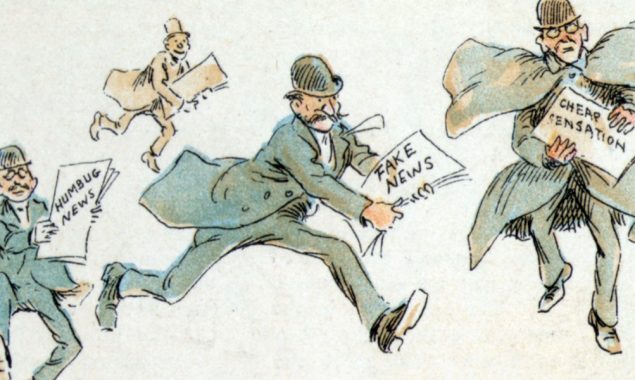
PRAGUE – As the regional crisis develops, unproven allegations and anti-Western misinformation are making remarkable advances in eastern Europe, a region previously dominated by Moscow and still resentful of it.
Disinformation about the situation has been actively disseminated in Slovakia, which borders Ukraine, even by certain members of parliament.
“I’m confident [Putin] wants peace,” Lubos Blaha of the communist opposition Smer party, who has over 170,000 Facebook followers, wrote following Putin’s address disputing Ukraine’s existence.
Blaha claimed that Ukraine “provoked and threatened Russia” while “the West was hectoring it.”
He added that the country is “controlled by oligarchic clans, neonazism and russophobia are on the rise, and corruption is in full bloom.”
Slovakia appears to have been especially vulnerable to pro-Kremlin propaganda.
This month, the 5.5-million-strong republic, which shares a 97-kilometer (60-mile) border with Ukraine, inked a defence treaty with the US, allowing US forces to operate on its soil.
That deal sparked outrage among the government’s political opponents as well as a sizable portion of Slovakia’s people, and it became a popular target of disinformation and propaganda.
Anti-US, anti-NATO, and even anti-EU attitudes are on the increase in Slovakia as a result.
An opinion poll last month by the Slovak Focus agency found that 44 percent of respondents believed the US and NATO were responsible for the escalating tensions between Russia and Ukraine, while only 35 percent held Russia responsible.
The anti-NATO narrative is particularly significant as one of Russia’s demands has been for the withdrawal of additional NATO forces sent to the region in the wake of Moscow’s annexation of Crimea.
“Already in January, there was a massive increase in disinformation aimed at justifying Russia’s aggression against Ukraine,” said Bohumil Kartous, a spokesman for the Czech Elves, a network of several hundred online vigilantes.
“This topic now far outweighs any other, including Covid,” said Kartous, whose group publishes monthly reports about fake news being shared in the Czech Republic and the wider region.
False posts seek to paint Ukraine as a “corrupt failed state” governed by “fascists” and practicing “genocide on its Russian-speaking population”, the Elves wrote in one of their reports on the conflict.
Roman Maca, an analyst at Prague-based think tank Institute for Politics and Society said there had been “a huge uptick” in disinformation in the region.
Maca said it was “interesting to see how many people and groups which have in the past two years fought against Covid measures now jump on the pro-Russian propaganda and start spreading this type of misinformation”.
In the weeks leading up to Putin’s decision to authorise Russian troops to enter eastern Ukraine, various videos circulated online in the region, supposedly showing Ukrainian troops getting ready for invasion or entering Russian territory.
AFP Fact Check found that many of these videos showed unrelated military drills filmed years earlier. Some of the footage came from 2014 when Russia annexed Crimea, while another video was a 2018 fake masquerading as a BBC report.
Some of the fakes “portray NATO as the one being responsible for the current situation, while Russia is supposedly just resisting long-standing efforts to threaten its security,” Kartous said.
“This resonates with a certain segment of the population,” he said, referring to the Czech Republic, which has sent ammunition to help Ukraine.
“For some, it builds on similar earlier claims and cements their conviction. For others, it creates a sense of insecurity which in turn creates resistance to the (Czech) government’s efforts to help Ukraine defend itself,” he said.
In parts of the region that have traditionally been more pro-Russian, Moscow’s narrative of Ukrainian aggression is already well-cemented.
Serbian President Aleksandar Vucic told TV Pink this week that 85 percent of his countrymen will “always side with Russia whatever may happen”.
Serbian tabloids this week repeated an unverified claim that Russian forces had destroyed two Ukrainian armoured vehicles that entered Russia.
“Ukraine attacked Russia!” screamed the front pages of Serbian tabloids on Tuesday, hours after Russian President Vladimir Putin announced he would recognise two separatist regions in Ukraine and order troops to be sent in.
Courtesy: AFP
Read More News On
Catch all the International News, Breaking News Event and Latest News Updates on The BOL News
Download The BOL News App to get the Daily News Update & Follow us on Google News.




